How AI and ML are Shaping Custom Software Development?
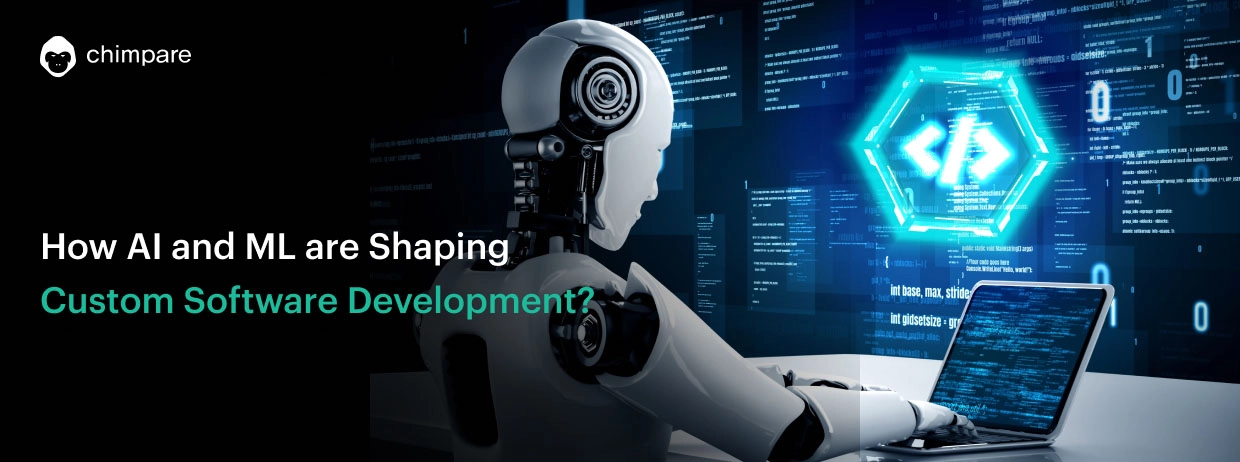
Table of Contents
AI and ML are not futuristic buzzwords; they are actual technologies reshaping the way corporations build and use software. AI and system studies are undeniably vital drivers in custom software development, from automating habitual responsibilities to creating document-breaking forecasts.
Instead of counting on traditional procedures, which typically require greater time and resources, corporations are more incorporating AI-powered features into their software to decorate overall overall performance, scalability, and accuracy.
For a custom software program development agency, specifically in competitive markets like the UK, adopting AI and ML isn’t just about staying updated with the modern inclinations; it’s about growing smarter, adaptive structures which can evolve with user needs.
The advantages of AI in this area are significant: progressed user studies, clever automation, quicker decision-making, and the potential to personalise solutions at scale. With the growing availability of best AI tools and frameworks, developers now have the power to design packages that are not simplest useful but also predictive and sensitive.
In this blog, we’ll explore how AI and ML are shaping custom software program development, the opportunities they create, and why agencies must embody them as a part of their digital transformation journey.
Unlock Web Development Potential for Your Business Today
From roadmap to execution, we’ll help you implement AI that drives measurable growth.
What is the Role of AI and ML in Custom Software Development?
AI and Machine Learning play a mile’s larger role in custom software development than simply imparting “smart” capabilities. These technologies have an essential impact on how software is produced, developed, and maintained. AI and systems gaining knowledge are ushering in a brand-new technology of software intelligence, permitting structures to examine from facts, adapt over time, or even make impartial decisions.
Let’s break down their role in detail:
1. Smarter Automation in Development
Traditional development often includes repetitive coding, manual checking, and regular bug fixing. With AI-powered automation:
- Developers can automate code generation, test case creation, and even debugging.
- Routine duties like system tracking or database optimisation are dealt with robotically.
- This allows improvement groups to give greater attention time on creativity and innovation in place of repetitive tasks.
2. Data-Driven Decision Making
Machine Learning prospers on statistics, and nowadays’s corporations generate widespread volumes of it. When applied in custom software solutions:
- ML algorithms can locate hidden patterns in personal behaviour, operations, and market tendencies.
- Applications can offer predictive insights, allowing businesses to make higher and faster decisions.
- An e-commerce platform, for instance, can predict which products may be in excessive demand primarily based on customer browsing and buying behaviour.
3. Personalisation and Enhanced User Experience
Users expect tailor-made studies, and AI makes this viable at scale:
- Custom packages can adapt to people’s desires for the use of ML models.
- Recommendation systems (consisting of those used by Netflix and Amazon) are the right examples of AI-powered personalisation.
- Businesses that provide one-of-a-kind personal trips see expanded engagement, client happiness, and lengthy-time period loyalty.
4. Intelligent Quality Assurance
Software testing is time-consuming, but it is also essential for reliability. AI tools help by:
- Errors, security flaws, and performance bottlenecks are identified considerably faster than with manual approaches.
- Using predictive analytics to detect potential failure areas before they happen.
- Ensures higher accuracy, faster releases, and a lower risk of post-launch issues.
5. Predictive and Preventive Capabilities
One of the biggest benefits of AI is the ability to foresee problems before they impact users:
- ML-powered apps can forecast machine failures, patron attrition, and fraudulent interest.
- This permits companies to alternate from reactive to proactive tasks, saving money and time.
- In areas inclusive of healthcare and finance, predictive software can make life-saving and cost-effective interventions.
6. Driving Innovation for Businesses
For any custom software development company, UK or globally, AI and ML are not just tools; they’re competitive advantages.
- They assist groups to build intelligent chatbots, virtual assistants, advice engines, fraud detection structures, and different packages.
- With the provision of top AI tools like as TensorFlow, PyTorch, and Scikit-learn, developers can fast prototype and implement AI-powered answers.
- Businesses that paintings with an experienced bespoke software program improvement business have get entry to to tailored answers that are revolutionary, future-ready, and aligned with their growth targets.
What are the Key Benefits of AI in Custom Software Development?
The use of AI and Machine Learning in custom software program development is more than simply a fashion; it represents a huge shift in how corporations build and put into effect virtual solutions.
AI allows organisations to attain new degrees of performance and innovation by way of making programs smarter, quicker, and extra adaptive. The following are the key benefits of AI in this domain:
1. Automation and Efficiency
- Streamlined Development Process: AI tools can automate repetitive responsibilities together, including code review, bug detection, and regression testing. This reduces manual workload and hastens the entire development lifecycle.
- Smarter Operations: AI-pushed automation facilitates machine tracking, overall performance tuning, and database optimisation without steady human intervention.
- Outcome: Development groups save valuable time, permitting them to recognition on constructing revolutionary functions in place of solving recurring troubles.
2. Enhanced Decision-Making
- Data-Driven Insights: Machine Learning models look at large datasets to become aware of styles and traits that would otherwise go unnoticed.
- Predictive Analytics: Applications can foresee patron behaviour, name for cycles, or marketplace risks, supporting corporations to make knowledgeable choices speedy.
- Outcome: Accurate, real-time information can also assist businesses in avoiding hazards, optimising resource delivery, and scaling programs.
3. Personalisation and User Experience
- Adaptive Applications: With AI, a particular software program may additionally personalise reviews for each person based on their behaviour, preferences, and interactions.
- Examples: It consists of e-trade advice systems, shrewd chatbots, and virtual assistants. Artificial intelligence makes apps greater consumer-pleasant, human-like, and engaging.
- Outcome: As a result, organisations improve consumer pride, retention fees, and convey unique digital reports that foster brand loyalty.
4. Cost Reduction and Scalability
- Reduced Operational Costs: Automating improvement, checking out, and protection processes lowers operational costs.
- Efficient Scaling: AI-powered structures are designed to scale successfully, managing elevated workloads without compromising overall performance.
- Outcome: A custom software development enterprise UK can supply agency-grade answers that are developed with an enterprise at the same time as being cost-effective.
What are the AI Tools and Frameworks Used in Custom Software Development?
Building sensible, scalable, and long-lasting apps takes more than simply AI and Machine Learning know-how. Developers use specialised AI gear and frameworks to efficiently create, teach, and set up superior models. These tools not handiest accelerate the development process but also make it simpler for businesses to incorporate AI into customised products.
Here are some of the greatest AI tools and frameworks commonly used in custom software development:
1. TensorFlow
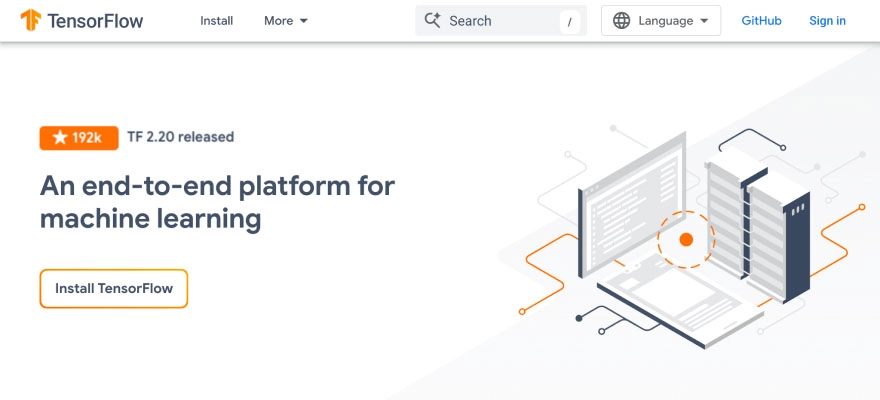
- What it is: Google’s open-source framework for growing and schooling machine gaining knowledge of and deep learning models.
- Why these subjects: TensorFlow affords flexibility, scalability, and a massive library of pre-constructed models. It works particularly well for NLP, photo identification, and predictive analytics.
- Use Case: TensorFlow will be used by a UK-based custom software program development enterprise to create packages together with fraud detection structures, advice engines, or AI-powered chatbots.
2. PyTorch
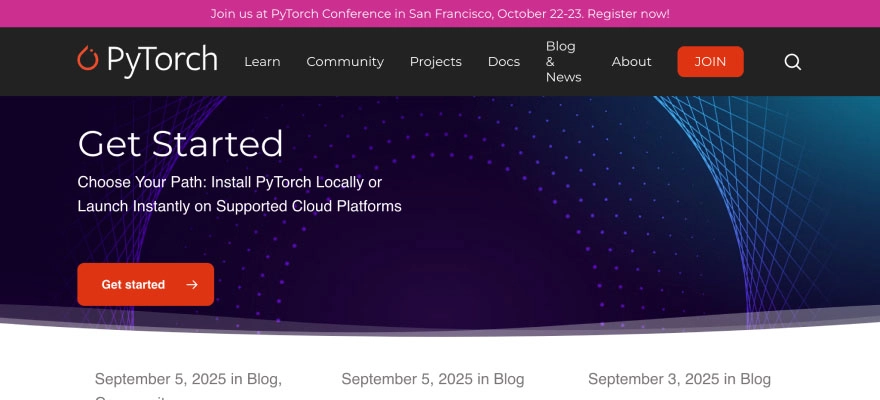
- What is it: Facebook’s AI Research team designed this deep studying gadget, which is referred to for its simplicity and versatility.
- Why this matters: PyTorch is popular among researchers and builders for prototyping because of its dynamic computing graph. It helps superior use instances like laptop imaginative and prescient and NLP.
- Use case: Useful in healthcare software for medical image analysis or in finance for credit risk prediction.
3. Scikit-Learn
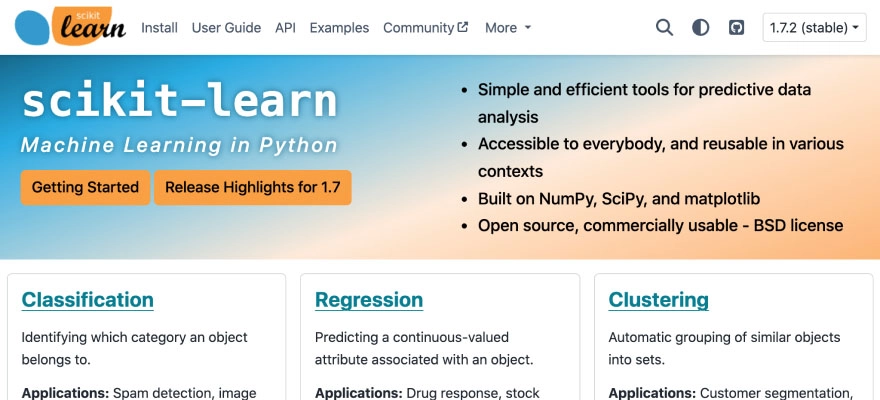
- What it’s miles: A Python-based library used for traditional Machine Learning obligations consisting of classification, regression, clustering, and data analysis.
- Why it matters: Lightweight, efficient, and best for projects wherein developers want a brief ML implementation without heavy infrastructure.
- Use case: Helps companies put into effect client segmentation models, predictive maintenance, and contact forecasting.
4. Microsoft Cognitive Toolkit
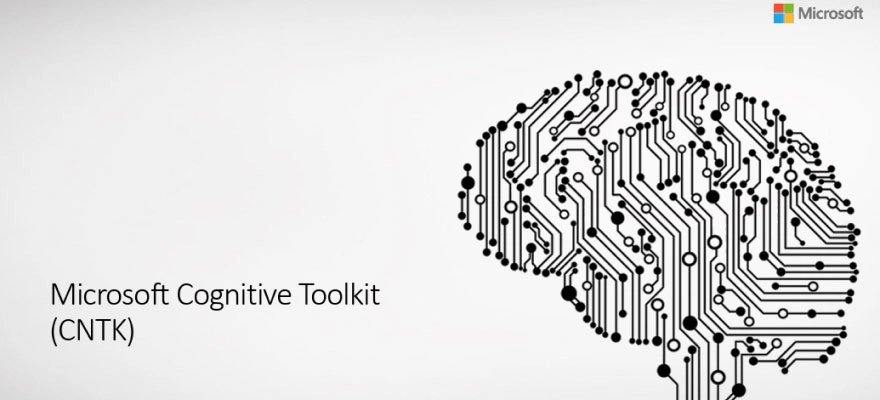
- What is it: Microsoft’s deep learning toolbox is built for performance and scalability.
- Why this matters: It supports large-scale, distributed training and is compatible with complicated neural networks.
- Use case: A custom software development company may leverage CNTK for speech recognition, predictive analytics, and big data applications.
5. IBM Watson
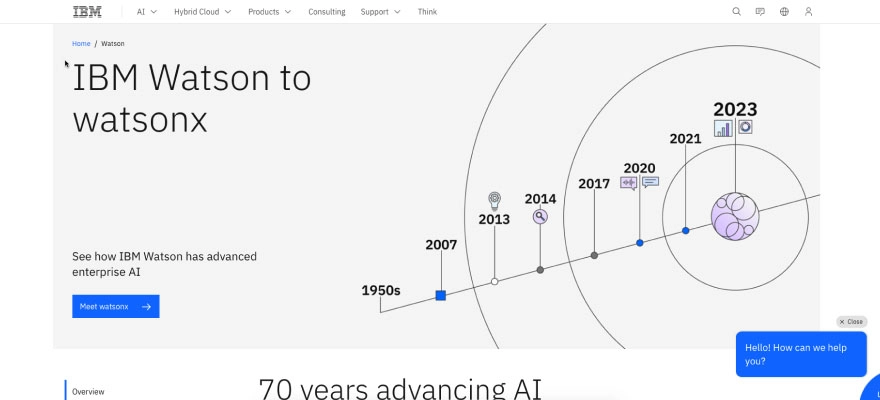
- What it is: a collection of professional AI services and apps.
- Why does this matter: IBM Watson offers pre-built NLP, computer vision, and speech reputation APIs that may be included in custom apps, doing away with the need to assemble fashions from scratch.
- Use Case: Suitable for chatbots, customer service platforms, and corporate choice-assist systems.
6. Keras
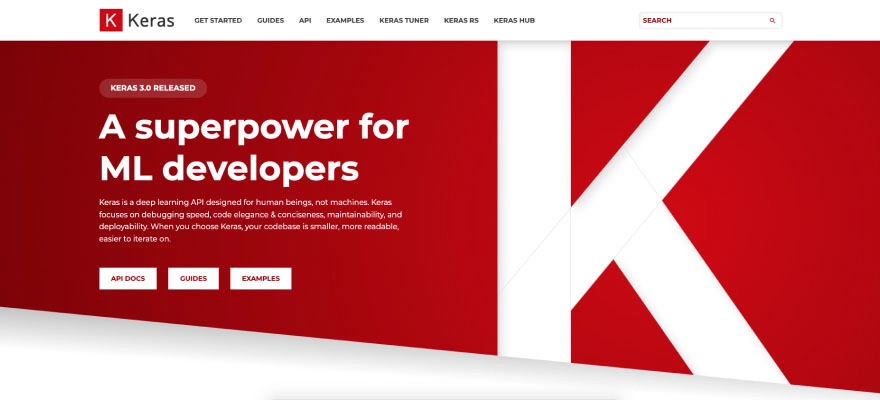
- What is it: A high-degree neural community API based on TensorFlow.
- Why does this matter: It is referred to for its simplicity, versatility, and fast prototyping abilities, making it perfect for builders.
- Use Case: Commonly used for growing proof-of-idea AI apps, advice algorithms, and personalisation functions.
7. Google Cloud AI and Azure AI
- What is it: Google and Microsoft AI platforms provide pre-trained models as well as infrastructure to develop and score unique AI solutions.
- Why does this matter: Cloud-based AI services enable companies to avoid significant investments in Primer’s technology.
- Use cases: These technologies provide scalability at the corporate level for AI-operated analysis and individual recommended engines.
Choosing the right AI framework relies on available data and required scalability. For companies, partnering with an experienced custom software improvement organisation guarantees the proper use of these tools, handing over packages that are not only effective, smart but also aligned with enterprise needs.
By leveraging the amazing AI device, developers can rework single data into actionable insights, automate strategies, and supply high-performance software solutions that provide businesses with a competitive edge.
How AI and ML Improve the Software Development Lifecycle?
The Software Development Lifecycle (SDLC) is the inspiration for constructing dependable and scalable applications. Traditionally, this manner includes multiple ranges such as requirement gathering, design, coding, testing, deployment, and maintenance. With the combination of AI and Machine Learning, every one of these tiers is turning greener, correct, and adaptive.
Here’s how AI is reshaping the development lifecycle little by little:
1. Requirement Analysis
- AI-driven insights: Machine Learning fashions examine beyond undertaking records, patron comments, and enterprise tendencies to assist groups in defining precise necessities.
- Natural Language Processing (NLP): NLP structures can compare large amounts of patron comments, survey statistics, or assist requests to discover consumer expectations and problems.
- Outcome: As a result, corporations may start tasks with facts-driven needs, decreasing the probability of steeply priced redo’s afterwards.
2. Design and Prototyping
- AI-driven Insights: AI-based wireframing platforms, such as equipment design mockups, enable teams to imagine the user travelling early in the process.
- Predictive UI/UX: By analysing user interaction data, AI setup, colour scheme or navigation may recommend improvements that improve the appropriateness.
- Outcome: A customised software development company can provide British user-centric design that is not only visually attractive but also supported by behavioural insight.
3. Testing and Quality Assurance
- Automatic Testing: AI equipment automates repetitive look at cases, regression tests and performance monitoring. This test substantially reduces the cycles.
- Error Exception: Machine learning algorithm is likely to reduce the possibilities for areas of the code base, so developers can focus on testing where it requires the most.
- Outcome: High accuracy, fast error detection and low human errors improve product reliability and a short time to market.
4. Deployment and Maintenance
- Smart deployment techniques: AI structures examine performance metrics in real-time to advise the exceptional deployment configurations.
- Predictive protection: makes use of machine learning models to foresee probably troubles or bottlenecks before they interrupt the device, making allowance for proactive solutions.
- Self-recuperation structures: Some present-day AI-powered algorithms can correct minor faults without requiring human intervention.
Businesses gain from reduced downtime, financial savings, and structures which could quickly adapt to changing situations.
Smarter Decisions. Faster Outcomes.
Leverage expert web development consulting to cut costs, boost efficiency, and stay ahead of competitors.
What are the Real-World Applications of AI and ML in Customer Software?
The impact of AI and Machine Learning goes some distance beyond concept; it’s already seen in realistic programs across industries. From healthcare to finance, and retail to logistics, AI-driven custom software is helping corporations clear up actual demanding situations, reduce costs, and supply smarter person experiences.
Here are some of the most essential actual international applications:
1. Intelligent Chatbots and Virtual Assistants
- How It Works: AI chatbots use NLP to examine user questions, solutions in real time, or even study from previous conversations.
- For example, Patron help systems that take care of enquiries around the clock decrease the need for human agents.
- Business Outcome: Business consequences consist of stepped forward customer support, decreased operational fees, and faster inquiry decision.
2. Recommendation Engines
- How it works: ML algorithms analyse user behaviour, preferences and procurement history to suggest personal products or services.
- Example: e-commerce platforms such as Amazon and streaming services such as Netflix use the recommended system to run engagement.
- Business Outcome: An increase in sales, high user storage and individual customer journey.
3. Fraud Detection and Cybersecurity
- How it works: AI algorithms examine transactions for unusual styles that could indicate fraudulent activity.
- Example: Banking and fintech packages use device getting to know to recognise and block suspicious bills in real time.
- Business Outcomes: They consist of reduced monetary losses and expanded consideration in virtual systems.
4. Healthcare Solutions
- How it works: AI-driven software application supports scientific imaging, patient facts evaluation, and even early disease detection.
- Example: ML fashions that analyse MRI scans to locate tumours or expect affected person health dangers.
- Business outcomes: Faster diagnosis, personalised remedy plans, and stepped forward patient care.
5. Process Automation (RPA + AI)
- How it works: RPA and AI work together to automate repetitive lower-level back-office tasks, like as bill processing, HR operations, and data access.
- Example: Corporations can automate payroll and compliance reporting with minimal administrative effort.
- Business Outcomes: It consists of much less human error, decreased fees, and shorter turnaround times.
Why Businesses Should Partner with a Custom Software Development Company?
Using AI and machine learning in commercial software is not easy to add a plugin or use a pre-produced product. It requires a strategic plan, special knowledge and appropriate technologies. This is when collaborating with a custom software development business becomes critical.
Here’s why firms should work with specialists rather than attempting to handle AI adoption on their own:
1. Access to Technical Expertise
TensorFlow, PyTorch and Scikit-Learn are examples of frameworks that need to be understood when creating AI-operated applications. A professional development team has the first experience with the best AI technologies, ensuring that the solution is based on a strong foundation. Companies now have access to experts in computer science, machine learning techniques and software architecture under a roof.
2. Tailored Solutions for Business Needs
Off-the-shelf AI applications often provide large capabilities; however, they hardly ever aid unique enterprise tactics. A UK-based custom software program development enterprise may also create AI-powered applications which are tailored to your enterprise, goals, and customer expectations. Tailored answers, together with predictive analytics in retail and smart chatbots in customer support, have a real monetary gain.
3. Faster Time-to-Market
Experienced development places of work use set up methodologies, automation, and reusable additives to reinforce transport. AI-driven automation further accelerates techniques like checking out, worm detection, and deployment. As a result, groups launch their answers faster and live ahead of the opposition.
4. Reduced Risk and Long-Term Scalability
Adopting AI without knowledge can lead to costly errors, unreliable models, and poor customer adoption. A trusted partner guarantees facts’ safety, compliance with guidelines, and machine scalability. As the commercial enterprise grows, custom-constructed solutions evolve seamlessly with it, saving long-term expenses.
5. Strategic Use of AI and ML
An improvement accomplice doesn’t simply combine AI; they help outline the way to use it strategically. By identifying the benefits of AI maximum relevant to the business (automation, personalisation, predictive insights, etc.), they maximise ROI. This transforms AI adoption from a tech upgrade into a competitive advantage.
Your AI Transformation Starts Here
Get a custom plan built around your business goals—without the tech overwhelm.
Conclusion
AI and Machine Learning are now not non-obligatory add-ons in commercial enterprise software; they’re turning into the driving force in the back of smarter, faster, and more efficient virtual answers. From predictive analytics and natural language processing to computerised checkout and wise personalisation, the blessings of AI in software improvement are clear: improved accuracy, decreased fees, and higher user reviews.
For companies, the actual task isn’t always just adopting that technology but doing so in a way that aligns with long-term desires and enterprise necessities. This is why partnering with a professional custom software development organisation becomes crucial. The proper group ensures that advanced AI tools and frameworks are carried out strategically, helping you flow past experimentation to developing scalable, global answers.
Whether you’re a corporation in search of transformation or a growing business searching out an aggressive facet, working with a reliable custom software program improvement agency UK can unencumber the overall capacity of AI and Machine Learning. By combining innovation with expertise, corporations can stay destiny-driven and supply software solutions that aren’t just practical but genuinely clever.
FAQs
AI is streamlining techniques like requirement evaluation, testing, and automation while permitting smarter features along with personalisation and predictive analytics in custom software improvement.
Machine Learning helps software adapt and enhance over the years by way of analysing data styles, improving decision-making, and helping functions like recommendation engines and fraud detection.
Yes. AI automates repetitive coding responsibilities, accelerates checking out, and predicts mistakes early, which notably reduces development time and lowers general project expenses.
AI and ML deliver smarter, greater scalable solutions with real-time insights, automation, and personalisation competencies that traditional software program techniques cannot in shape.

Samuel Meleder
Samuel Meleder founded Chimpare, a global company that builds software solutions. With a passion for innovation and a commitment to helping businesses grow through smart digital strategies, Samuel leads a global team delivering cutting-edge solutions across industries
Found this post insightful? Don’t forget to share it with your network!
Related Articles
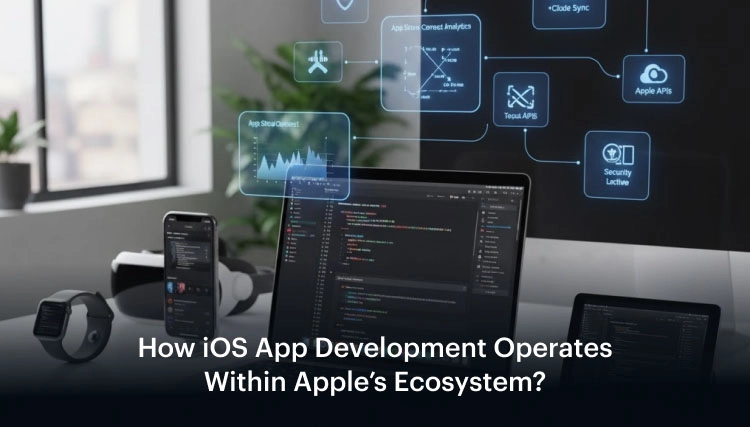
How iOS App Development Operates Within Apple’s Ecosystem?
Developing iOS apps entails more than simply coding for iPhones. They are debating the creation of applications within Apple’s precisely
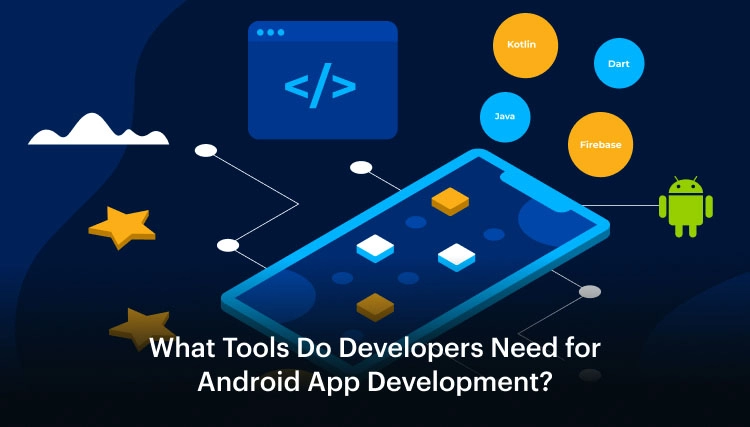
What Tools Do Developers Need for Android App Development?
Building an Android app was, at one time, simply a few lines of code and the immediate display of the

How is Custom Software Development Helping UK Companies?
Companies in the UK are conducting their business in a highly digital and cutthroat environment. Custom software development is helping
